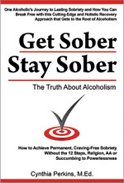Addiction and Stress
The connection between addiction and stress is complex and multifaceted, and if this issue is ignored, it has the potential to trigger compelling and uncontrollable cravings for your substance of choice and lead to relapse. You may have noticed that your cravings are most intense or usage of your addictive substance is increased when you are under stress and there's a variety of reasons that occurs.
For one, it activates our sympathetic nervous system, also known as the fight or flight system or stress response system, which results in high levels of cortisol and norepinephrine in the brain, and a disruption to dopamine and serotonin. When we are under stress, we need an abundance of neurotransmitters as they are what modulates the stress response system. If there are high levels of on-going stress, then neurotransmitter levels will be drained.
Neurotransmitters enable us to stay focused, motivated and alert until the situation has passed. If we remain in a state of chronic stress, the neurotransmitters will be called upon continually; the demand for neurotransmitters exceeds the supply and this will continually drain the neurotransmitter levels.
Why is this important? Because, as discussed throughout the pages of this website, the root of all addiction is an imbalance or depletion of neurotransmitters. If neurotransmitters are depleted from stress, then cravings for alcohol or your substance of choice will ensue. This can be a significant trigger for relapse. The name of the game in recovery from alcoholism, or addiction of any kind, is restoring balance to the neurotransmitters in the brain.
Not only that, when we're under stress, the body uses up all its reserves of nutrients faster, which depletes the levels of nutrients that are available to make neurotransmitters. Additionally, it produces metabolic waste products, which when added to all the other toxins from sugar, carbs, alcohol, drugs, nicotine and caffeine, overburdens the body with more and causes more stress.
When we experience stress, epinephrine is released and it triggers the liver to start dumping its glycogen (sugar) back into the bloodstream, which means blood glucose levels rise, because we need lots of energy when we are under stress. Anytime glucose rises, then insulin is released to bring it back to normal. Anytime insulin is spiked, then cravings for sugar, carbs, alcohol or drugs are likely to ensue.
Drinking, taking drugs, smoking, consuming caffeine, sex, compulsive overeating, gambling, etc., can become learned behaviors as a way to manage your stress. Therefore, it is crucial that you learn how to manage your stress in healthier ways to break this pattern.
However, when we experience stress, our capacity to think things through before acting or control our impulses, and utilize any stress management skills we may have built is hindered. As a result, one may fall back into old addictive behaviors out of habit and turn to a drink or a drug to get through the stressful event, thus keeping stress to a minimum is essential.
Due to the fact that neurotransmitters are released when we are under stress, some people may even become addicted to stressful situations, as it becomes an unconscious attempt to acquire a boost in neurotransmitters that are depleted.
It's also important to understand that there are many different kinds of stress besides emotional stress. For example, consumption of caffeine, sugar, and junk food, smoking cigarettes, nutritional deficiencies, environmental toxins, low blood sugar, candida overgrowth and too much exercise are all a form of stress, which activate the sympathetic nervous system. Therefore, identifying and addressing all the different types of stressors you may be dealing with is equally important.
With all that being said, it should be clear at this point that understanding how addiction is related to stress is a crucial piece of knowledge in the recovery process.
Using a variety of stress reduction techniques like deep breathing exercises, mindfulness, physical exercise, mindfulness meditation, yoga, communing with nature, smiling more frequently or other similar techniques on a daily basis is vital to succeed with long-term sobriety and should be a major component of your recovery plan.
Not only does mindfulness meditation reduce stress, but it also stimulates the frontal lobes of the brain, thus increasing neurotransmitters and enhancing your body's ability to detox. Studies have found mindfulness to be an excellent adjunctive therapy in addiction; decreasing relapse, depression, anxiety, stress and cravings. Additionally, mindfulness is a great spiritual practice that will increase inner peace, self-awareness, well-being, empathy, compassion, creativity and intuition. The same is true of deep breathing exercises.
You may be surprised to learn that the simple act of a smile, even a fake one, can stimulate dopamine, serotonin, endorphins and GABA and help you build new neuronal pathways, thus turning off the stress response system and aid in reducing cravings for your substance of choice.
Psychotherapy or counseling can also be very helpful in this area if the stress is ongoing. Some people find hypnosis or journaling to be a good supportive therapy as well.
The greatest aspect about techniques like deep breathing exercises, mindfulness and smiling is that they build upon themselves; the more you use them, the more effective they become. Not only that, you'll also find that you experience more happiness and joy, less anxiety and irritability, and a more positive outlook on life. Last, but not least, with regular practice they will increase your stress threshold; meaning it will take a lot more to upset your apple cart in the first place.
On the other hand, addiction and stress have a reciprocal effect on one another, because addiction itself impairs your ability to cope with stress. All addictive drugs and alcohol, as well as sugar, caffeine, nicotine and carbs, deplete your neurotransmitters, so they are not available to manage your stress. This means that when you first get clean and sober you are particularly vulnerable to the effects of stress. The longer you remain clean and sober the easier it will become to develop your stress coping skills, and the better you get at managing it, the easier it will be to remain remain clean and sober.
References
Dr. C.E. Gant, Webinars/Quit-Smoking-4-22-10.wmv
Dr. C.E. Gant, Webinars/Addiction-4-29-2010.mp3
Psychology Today, Mindfulness Meditation & Addiction, Ronald Alexander, PhD.
Journal of Addiction Medicine: September 2008 - Volume 2 - Issue 3 - pp 165-173 Mindfulness Meditation for Alcohol Relapse Prevention: A Feasibility Pilot Study, Zgierska, Aleksandra MD, et al.


